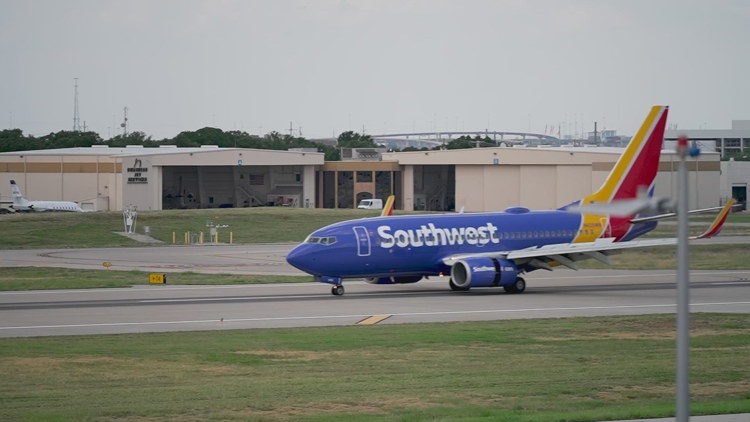DALLAS — Fundamental changes to what it means to fly on Southwest Airlines Co. have sparked a wide range of reactions.
When the Dallas-based airline announced July 25 it would adopt assigned seats and start selling premium seats, it wasn't exactly a surprise. Southwest (NYSE: LUV) had been openly contemplating the moves for months as way to boost revenue and profits.
But when Southwest begins phasing out free-for-all seating sometime in 2025, it will still be a major shift. That has some customers worried about the culture at an airline founded on the principle of doing things differently than competitors.
Many employees who handle boarding and customer service have a different take. The changes are "welcome and long overdue," said Kristina Peterson, a Southwest flight attendant and union representative.
"The conversation has been on the forefront for years," she said. "It provides flight attendants with a passenger manifest of who's on board, which is important for safety and security reasons. It also alleviates the stress and chaos of the boarding process and helps to expedite the process overall."
In addition to more streamlined boarding, the change should benefit families and groups that want to sit together, said Peterson, first vice president of the Transportation Workers Union Local 556. She noted it could also make things easier for business travelers.
"I think that this will be very well-received," she said. "We're hoping that it helps bring business travelers back. It allows them that flexibility at the last minute to book a bulkhead seat in lieu of boarding in the C boarding group. We think this is fantastic."
Southwest has framed the changes as a chance to bring in extra revenue. But Elliott Investment Management LP, an activist investor that has pushed for changes at the airline since disclosing a $1.9 billion stake in Southwest in June, thinks the changes don't go far enough. The New York-based firm has harped on the company's sagging share price, which is down more than 30% in the past two years.
Elliott has pushed for the departure of President and CEO Bob Jordan and Executive Chairman Gary Kelly. The firm has also advocated for Southwest to do away with its famous bags-fly-free policy, though airline executives have said that's not on the table.
"This failed leadership team's announced initiatives — obvious attempts at self-preservation — are simply not credible," Elliott partner John Pike and portfolio manager Bobby Xu said in a July 25 statement. "Too little, too late is not a strategy. It's time for new leadership."
Southwest shares are up about 2% since their close July 24, before the changes were announced, but are down about 5% year to date.
Wall Street analysts have given muted responses to the changes, perhaps because they were expected and already priced in by the market. In a research note, analysts at JPMorgan Chase pointed out that the news did not "meaningfully impact" their view of the airline's financials but noted potential benefits once Southwest can deploy the changes across its fleet and better hone its pricing and marketing, although those are not easy feats. The JPMorgan analysts set a share price target of $20 while keeping their rating of the stock unchanged at neutral.
On the same day it announced the seating changes, Southwest reported second-quarter financial results. They included record quarterly revenue of $7.4 billion, up 4.5% from the same period in 2023. But the key metric of revenue per available seat mile, or RASM, was down 3.8% to 15.9 cents. Adjusted earnings per share were 58 cents, beating the consensus estimate of 51 cents.
Southwest declined to comment for this story. In an July 25 call with analysts and media, Jordan said the Q2 results were "not where we need them to be, and they are not reflective of what we are capable of delivering."
Jordan segued into the seating changes and pointed to Southwest research that found that 80% of its customers prefer an assigned seat, along with 86% of potential customers. Plus, he said when customers leave Southwest for a competitor, the No. 1 reason cited was open seating.
"It's clear that the open seating model that served us well for so many years is no longer optimal for today's customer," he said. "I want to stress that this decision was not made lightly. We have been very thorough and deliberate in how we approached the question, conducting multiple sophisticated research studies over many months that evaluated customer preference and looked at different types of cabin layouts and seating methods."
He said, "There is a significant ability to monetize the cabin more effectively with a premium seating option."
Regarding Elliott Management, Jordan said on the call the investment firm has "not shown any willingness to engage in any meaningful conversations with us. ... Like any shareholder, we would love to engage and hear their feedback."
He said the leadership team was "focused 100% on moving the company forward on the plans that ... we laid out today and on transforming this company and hitting our desired financial returns."
Southwest plans to provide more information about the upcoming changes at its investor day event in September.



